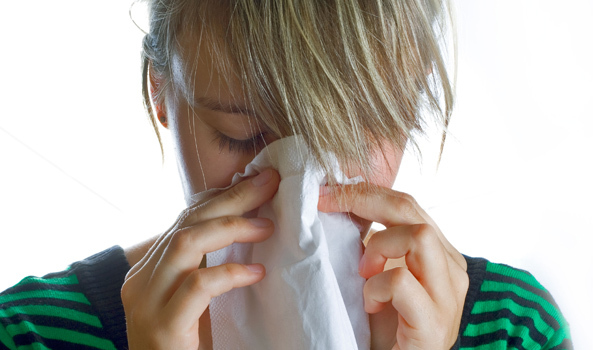Are Colds and Flu Worse in Women Than in Men?

Colds and the flu may take a bigger toll on women than men, according to a new study based on people's reports of their own symptoms.
The women in the study were more likely than the men in the study to report severe fatigue and muscle aches when they had a cold or the flu, according to the findings, presented in New Orleans last month at IDWeek 2016, a meeting of several organizations focused on infectious diseases. The findings have not been published in a peer-reviewed journal.
In addition, women's severe symptoms lasted longer than men's, according to the study participants' self-reports, the researchers found. [7 Absolutely Horrible Head Infections]
In the study, the researchers compared self-reported cold and flu symptoms in 777 men and women who were seen between 2009 and 2014 at five military treatment facilities across the U.S., said study co-author Dr. Robert Deiss, a research physician with the Infectious Disease Clinical Research Program, a program of the Uniformed Services University of the Health Sciences. The people in the study were either on active duty in the military or were family members of people in the military, he said.
When the patients first went in for treatment, a health care worker took a nasal swab to determine what type of infection they had, and asked the patients about the symptoms they'd had since they became sick. The participants were also asked to start keeping a diary of their symptoms and the severity of those symptoms on a scale of 0 to 3, with 0 indicating that they did not have the symptom, 1 indicating mild symptoms, 2 indicating moderate symptoms and 3 indicating severe symptoms, according to the study.
The symptoms included lower-respiratory symptoms, such as coughing, difficulty breathing and chest pain; upper-respiratory symptoms, such as earaches, runny nose, sore throat and sneezing; and "systemic" symptoms, which included fatigue, headache and muscle aches.
The researchers found that infections from Enterovirus, coronavirus (both of which can cause colds) and influenza virus were common among the participants. They also found that the different types of viruses infected men and women at about the same rates, Deiss said. [Flu Shot Facts & Side Effects (Updated for 2016-2017)]
Get the world’s most fascinating discoveries delivered straight to your inbox.
However, women were more likely than men to report moderate or severe earaches, headaches and reductions in appetite when they first went to the doctor, the researchers found. Women were also more likely than men to report severe symptoms of fatigue and muscle aches.
But the researchers also found that men and women reported similar levels of symptom severity when they looked back at their first few days of being sick, Deiss said. It wasn't until the third day of being sick that men and women reported differences: From this point on, women were more likely than men to continue to report severe symptoms, he said. [7 Health Woes Brought on by Winter]
Because the symptoms were self-reported, it's unclear if some people minimized their symptoms while others overemphasized them, Deiss noted. What the researchers can conclude from the study is that there seems to be a difference in how men and women report their symptoms, he said.
In the future, the researchers hope to look at the biological differences in cold and flu symptoms in men versus in women, Deiss said. Hormonal differences may play a role in how the immune system responds to these viruses, he said.
Originally published on Live Science.




